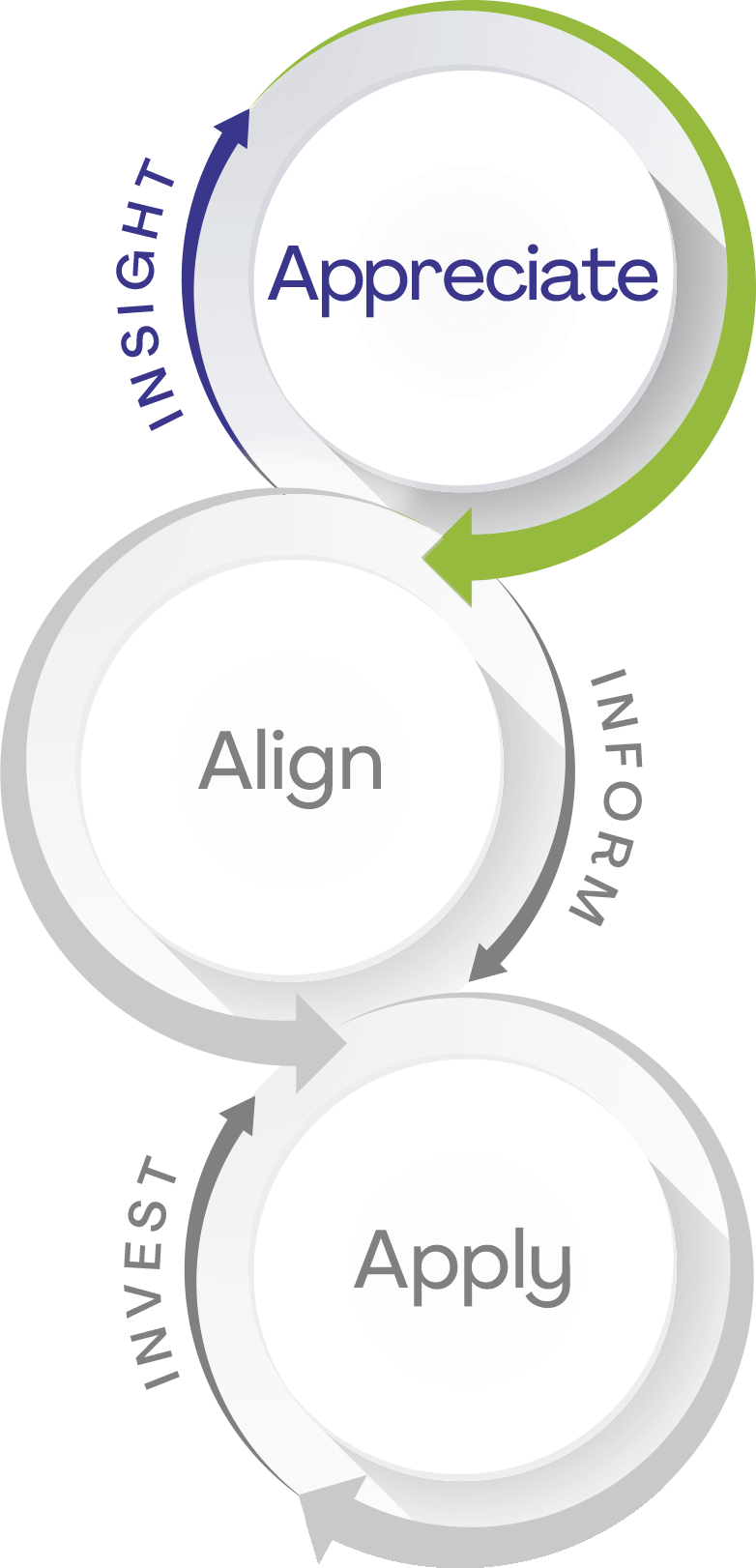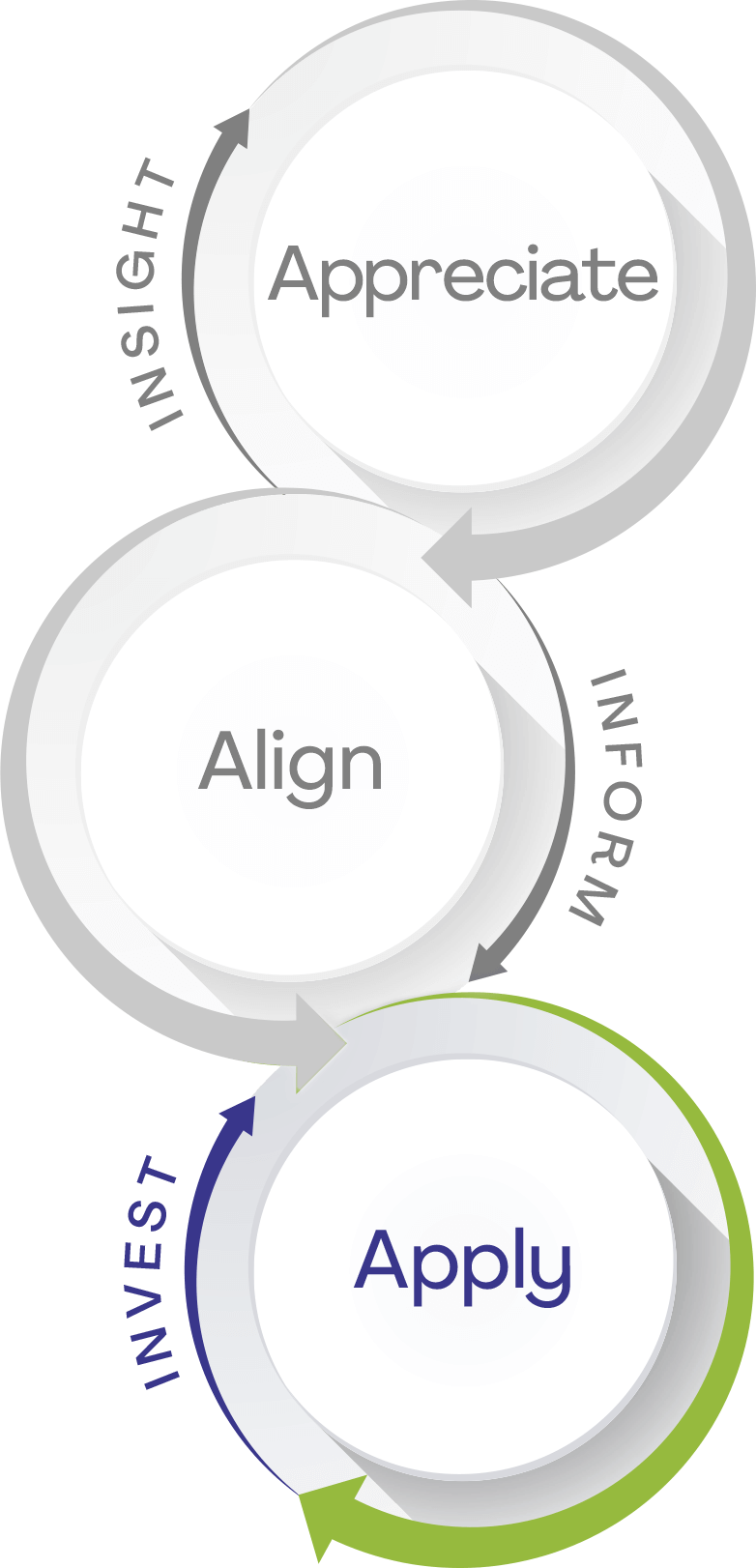
Appreciate is an investigative process that provides a deep understanding of context and strategy. Where you are heading as an organisation determines the skills and behaviours you need to get there. We engage with employees on an individual or group basis, completing in-depth analysis to benchmark capabilities.
This isn’t generic profiling; it is helping us move to an evidence-based view of what you have against what you need.
Our depth of experience and uniquely agnostic approach means we apply only the most appropriate cognitive and psychometric tools to generate the most relevant information. This is also the start of the individual development journey, leading to heightened self-awareness and deeper personal insight.
We take a robust but supportive approach, building trust, challenging assumptions and ensuring full engagement of all those involved.

Align is about analysing the data to look beyond the immediate presenting issues to see what’s really going on.
The result is a complete view of the current situation, based on robust data and individual experience. We create a Heat Map of the organisation, highlighting strengths and gaps, uncovering the true pain points, and identifying where we can have the greatest impact. All in the context of where you are headed.
Armed with that evidence, we recommend bespoke interventions. The output is a clear strategy for purposeful investment, with agreed metrics to help key stakeholders understand how our proposals will support overall strategic ambitions.

This is learning not as an isolated event but building on the principles of 70/20/10 through human centred design interventions interwoven with mindset and behavioural change and personal growth.
We work with individuals and teams to address real issues in real time wrapping around new thinking, tools and techniques across their normal working routine, creating immediate impact and lasting behavior change.
The participant owns the process, and the aim is personal growth not just transfer of knowledge. This real-life approach is combined with structured social and peer learning, building self-supporting teams and short learning experiences based around personal pain points.